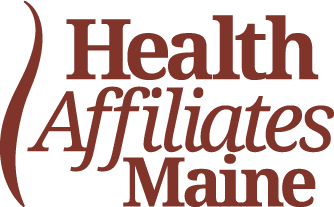This class meets the requirements for Domain 3, Ethics & Professional Conduct, of the Maine MHRT/Community curriculum.
About this event Tickets
This class meets Tuesdays and Thursdays from 9:00am-12:15pm from February 1 to March 3, 2022 via Zoom. You must be able to attend all classes.
In this training, we will study the knowledge and application of ethics and professional conduct in your work as an MHRT/C.
The following knowledge competencies will be reviewed:
Knowledge Competencies for Domain 3: Ethics and Professional Conduct
Demonstrate a standard of professionalism and integrity in practice, and confront and resolve ethical challenges by seeking appropriate collaboration and consultation.
- Explain ethics and how to conduct practice within the context of a professional code of ethics. Give examples of inappropriate behavior. Define appropriate contexts for dual relationships and how to set and maintain clear, professional, and culturally sensitive boundaries.
- Relate the intersection of ethics with state and federal laws.
- Define confidentiality requirements and how to communicate these policies to staff, consumers, families, guardians, and others.
- Describe the evolution of HIPAA and what constitutes protected health information, including communication requirements within the context of health information technology.
- Explain how to secure informed consent from a consumer.
- Maintain sound documentation that reflects an adherence to individualized, person-centered care.
- Explain a provider’s ethical responsibility to empower consumers.
- Identify a number of strategies, consistent with professional practice, to empower consumers.
- Collaborate and interact effectively with community members and other professionals.
- Describe what it means to be an effective contributing member of an interdisciplinary team.
- Model appropriate professional behavior at all times, apply ethical guidelines and demonstrate the effective use of supervision.
- Practice using a supervisory relationship to resolve ethical challenges.
- Summarize the importance of evaluating the effectiveness of personal practice.
- Describe how individuals working in the behavioral health field practice self-care. Utilize supervision effectively to prevent compassion fatigue and vicarious traumatization.
Course Expectations
1. Attendance:
Students must attend each day of class (5 units) and receive an 80% or above on the final exam to earn a certificate of completion. If a student misses a day, they are responsible for arranging to attend the next offering of the missed unit, with either the same trainer or another organization. Unit 5 is optional for students with the required academic preparation.
2. Make‐up work:
Students must attend all five units (or four with a related degree) as stated above, and complete and submit any missed assignments.
3. Class size:
The standardized MHRT/C curricula are interactive. The recommendation is that classes have no fewer than six (6) participants and no more than 20.
4. Class participation guidelines:
- Students will arrive on time and stay until the end of the unit (no early dismissals).
- Students will demonstrate respect for others. This means:
- Listening completely before interjecting.
- Use appropriate pronouns. Respect the pronouns individuals choose for themselves.
- Use person‐first language. This language puts the individual before the disability. For example, “a person with schizophrenia” or “an individual with bipolar” as opposed to “a schizophrenic” or “bipolar woman” or “mentally ill man.”
- Use first person language, such as “I” messages. [For example, “I didn’t understand his response to my question” as opposed to “He overreacted to my question.”] This allows students to take responsibility for their feelings and experiences rather than blame them on someone else.
- Keep personal reflections and stories shared in class confidential.
- Cell phone use: Cell phones should be placed on vibrate or silenced at all times during the class. Cell phone calls must be taken in the hallway or in private.
- This course requires demonstration of knowledge and skills, therefore, students are expected to participate in all activities.
5. Course evaluations
Participants will receive a link to complete an online evaluation the last day of their training. The Muskie School Center for Learning will summarize the evaluations and share results with the trainers and DHHS/OBH.
About the Presenters:
Marylena Chaisson, LCSW, is a clinical supervisor in the case management program at Health Affiliates Maine. She is a clinical mental health counselor (LCPC) who has worked in rural, under-resourced Maine communities for nearly 20 years both in agency and private practice settings. She also enjoys her work as a Disaster Mental Health contracted trainer for the state of Maine’s Disaster Behavioral Health Team, part of the Maine CDC and Maine DHHS.
Mary Gagnon, LMFT, is a Licensed Marriage and Family Therapist and the Training and Clinical Development Specialist for Health Affiliates Maine. Mary has worked in private practice as well as a variety of community mental health settings throughout her career. Her most recent work at Health Affiliates Maine includes oversight of clinicians in private practice and development and facilitation of trainings for schools and conferences throughout the state. She is a certified trainer for Domains 1, 2, 3, 4, 6, and 7 for the MHRT/C Non-Academic Curriculum.



